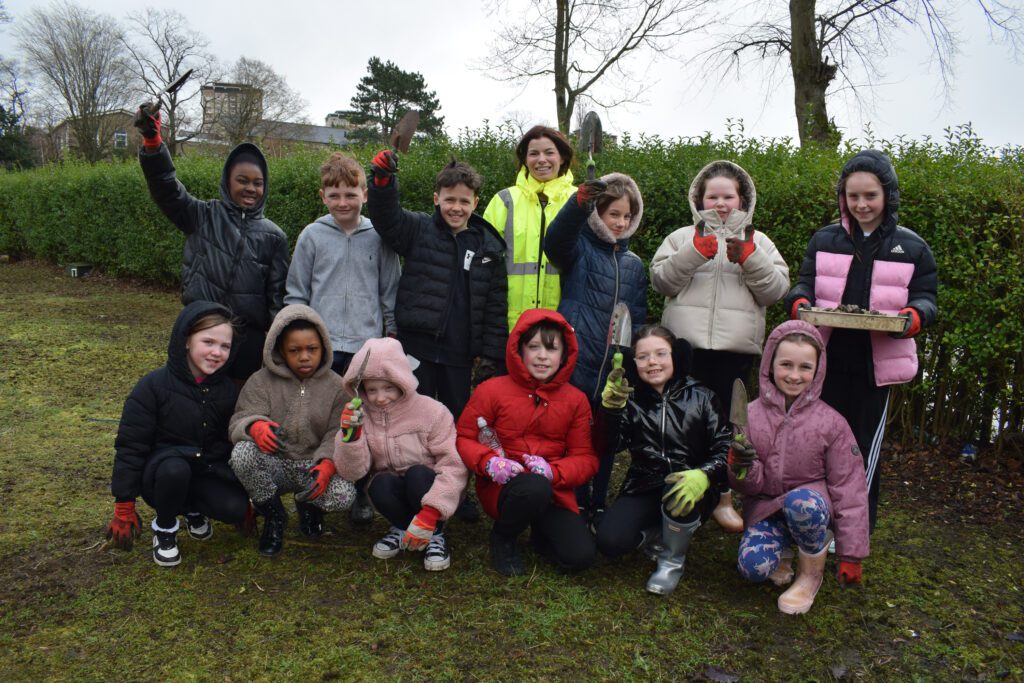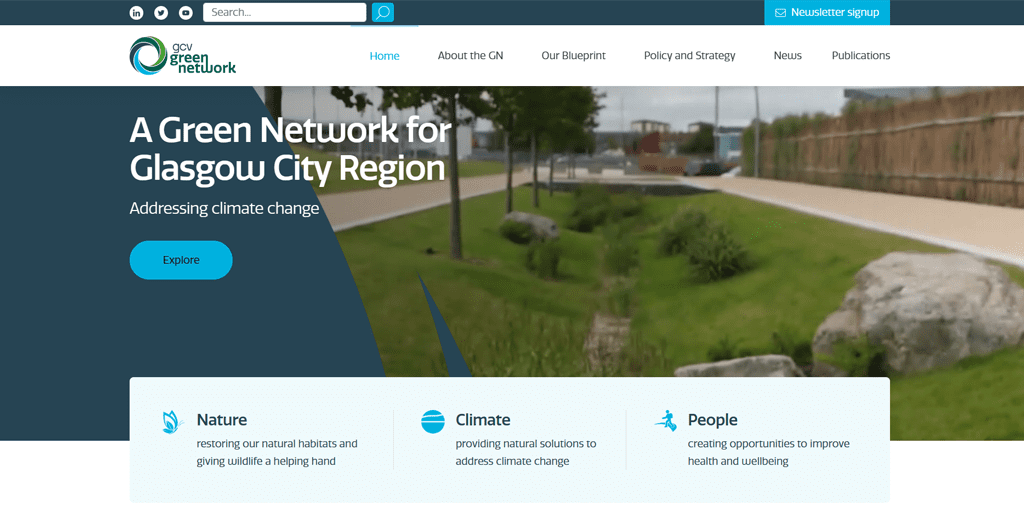Green Network vision launched for City Region

A nature and climate friendly vision for Glasgow City Region has been launched, to help create a better place for wildlife and the area’s 1.8 million people.
The GCV Green Network, aims to highlight the incredible work being done across the Region to restore degraded peatlands, plant carbon soaking trees, recreate and link up valuable grassland and wetland habitats for nature, and to create off-road walking and cycling routes for people.
A new website and brochure will showcase the flagship initiatives which will help deliver the vision: Clyde Peatlands, Clyde Climate Forest, Clyde Grasslands, Clyde Wetlands, and Clyde Greenways.

The GCV Green Network developed the initiatives from their ‘blueprint’ for the City Region which highlighted the need for an off-road walking, cycling and wheeling network, helping people to travel sustainably, and habitat networks, aiding the movement of wildlife through the landscape.
One of the key Green Network delivery initiatives is Clyde Peatlands. With around three quarters of Scotland’s peatlands damaged, and therefore releasing carbon instead of storing it, our Region has a crucial role to play in restoring peat to help achieve net zero targets.
Clyde Peatlands, in partnership with Inverclyde Council and with funding from NatureScot’s Peatland ACTION fund, is currently restoring almost 1000 ha of peatland at Duchal Moor and Dowries Farm, in the Clyde Muirshiel Regional Park.
Over 450ha of this has just been completed in phase 1 of the project with phase 2 now well underway. The project will contribute to Glasgow City Region’s bid to cut carbon emissions by locking up and storing carbon, as well as restoring a valuable wildlife habitat.
Grasslands can also be a hugely effective carbon store. The Clyde Grasslands initiative aims to protect, manage and expand species rich grassland habitats for wildlife, while locking up carbon. With some 97% of grassland and meadows lost in the UK since the 1940’s, Clyde Grasslands has a critical role to play in recreating these lost habitats, supporting the many threatened species that live in them.
New grasslands will be created in parks and greenspaces, in nature reserves, along river banks and on road verges in a targeted way as part of Grassland Nature Networks, that allow wildlife such as pollinators to move between habitat more easily. Clyde Grasslands will develop a range of projects including the creation of over 5ha of new meadows in partnership with Inverclyde Council and Green Action Trust.
The initiative will also highlight the fantastic work done by local authorities such as North Lanarkshire Council who are engaging local school children in wildflower sowing activities. Earlier this month kids from Cathedral Primary School in Motherwell helped sow a wide range of flowers such as viper bluegloss, ox eye daisy, birds foot and red campion in the beautiful Duchess Park, in partnership with Starling Learning.
A range of projects like this across the City Region will help to bring a step change in delivery of this key habitat for biodiversity.
The Clyde Climate Forest, launched in 2021, has also begun to make a huge impact across the region with over 2 million trees now in the ground. This spring, more than 600 trees were planted in Whitecrook, Clydebank as part of the wider initiative with Green Action Trust and West Dunbartonshire Council.
Kevin Rush, Director of Regional Economic Growth for Glasgow City Region, said “Through the restoration of peatlands, sowing of wildflower meadows and planting of millions of trees, in areas particularly vulnerable to climate impacts, we are addressing the climate emergency and moving ahead at pace in our drive to NetZero.
All of this makes our Region a sustainable and liveable place where people and wildlife can move around easily while contributing to a Net Zero future.
The Green Network will help us accelerate climate action and create a place which improves people’s lives and allows business to thrive.”
The GCV Green Network which brings together the Region’s 8 local authorities together with 5 public agencies NatureScot, Scottish Forestry, SEPA, Public Health Scotland and the Glasgow Centre for Population Health have campaigned for the integration of Green Network thinking into national and regional policy since 2007.
You can view the Green Network website here: www.gcvgreennetwork.gov.uk